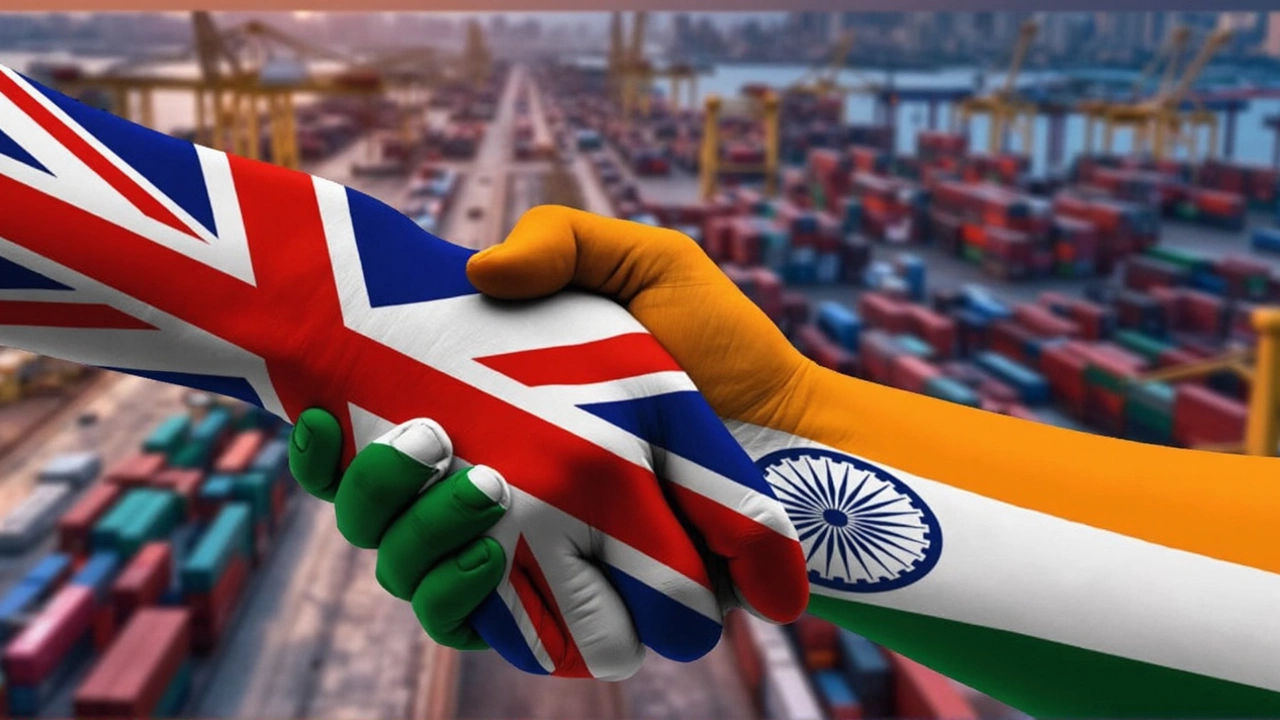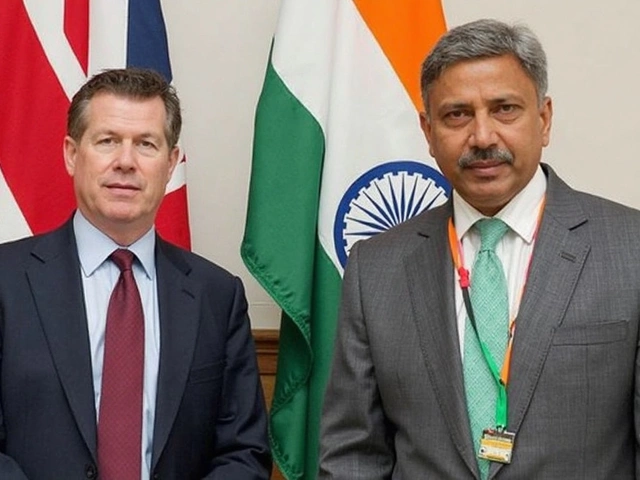India-UK Free Trade Agreement Slashes Tariffs: What Gets Cheaper and Who Wins

Big Shake-Up: What the India-UK Free Trade Deal Means for Your Wallet
The India-UK FTA isn't just a routine government handshake—it's a trade revolution that's about to change prices, jobs, and even your shopping basket. When India and the UK finally signed this deal on May 6, 2025, it set off a domino effect across nearly every major industry both countries care about. Official numbers show bilateral trade had already hit $21.34 billion for 2023-24, but with tariffs about to nosedive, that number isn't sticking around for long.
Let’s get to what folks will notice first: prices. British whisky and gin have long been objects of desire for many in India, but sky-high tariffs kept them out of reach. Right now, buying a bottle means paying a duty of 150%, pushing costs through the roof. Thanks to this agreement, that same tariff gets cut in half—down to 75% right out of the gate, and it’s set to shrink again to 40% in the next decade. Suddenly, the price of single malt or that bottle of premium gin doesn’t look so terrifying. Expect bars and liquor shops to widen their offerings, and for British spirits to become a much more common sight at Indian celebrations.
Cars are getting a similar treatment. If you've ever dreamed of getting behind the wheel of a British car like a Jaguar or Land Rover but balked at a sticker shock that more than doubled the original price, that dream is now more realistic. The tariff on imported cars from the UK will tumble from over 100% to just 10%, though this will work under a special quota. In plain terms: more imported British vehicles, more choices, and probably some serious competition for Indian automakers who now have to keep up.
The impact spreads even further than booze and wheels. British medical equipment and advanced machinery, once expensive because of taxes, will benefit from lower Indian tariffs. Expect to see more UK-made hospital devices, imaging machines, and industrial tools entering Indian markets, possibly improving health care and manufacturing in the process.
Grocery shoppers aren't left out either. Importers will now find it much easier to bring in British foods like salmon, lamb, soft drinks, biscuits, and chocolates. With duties dropping, these once-niche treats could make regular appearances on Indian supermarket shelves. Indian consumers get more options, and UK food brands find a much bigger audience.

Jobs, Exports, and Professions: Who Else Wins?
While Indian shoppers get more choices, Indian manufacturers get something even better: access. Indian exports—think textiles, leather shoes, gems, jewelry, and marine products—now enter the UK market practically duty-free. The FTA promises zero-duty market access for 99% of Indian exports to the UK. This is big news for India’s labor-intensive sectors, often the backbone of small towns and cities. When factories can sell more abroad, they hire more people at home. According to industry sources, leather and garment businesses are already gearing up for expansion, hoping to double sales in the next few years.
The agreement also scores a unique point for Indian professionals. Social security (think hefty deductions from your salary) has always been a headache for Indians working temporarily in the UK. With new exemptions in place, they'll keep more of what they earn, and employers save money too. This could make the UK a much more attractive destination for skilled Indian workers, especially in tech, healthcare, and engineering.
Both governments claim the deal is a win-win. Prime Minister Modi called it "mutually beneficial," stressing the direct help for Indian workers and businesses. The UK government, while opening its borders to Indian goods, also locked in protections for things like NHS services, food safety, and animal welfare, addressing common worries at home about trade deals going too far.
In trade, it’s rare for both sides to walk away grinning, but this agreement comes close. India gets better access to high-value UK markets, while UK exporters—be it cars, snacks, or devices—get a smoother ride into one of the world’s hungriest emerging markets. And for everyone else? Expect cheaper British stuff in Indian stores, a rise in Indian goods abroad, and a bit more competition all around. It’s not just officials benefiting—it’s the everyday consumer, the worker, and the business owner who will feel the changes soon.

